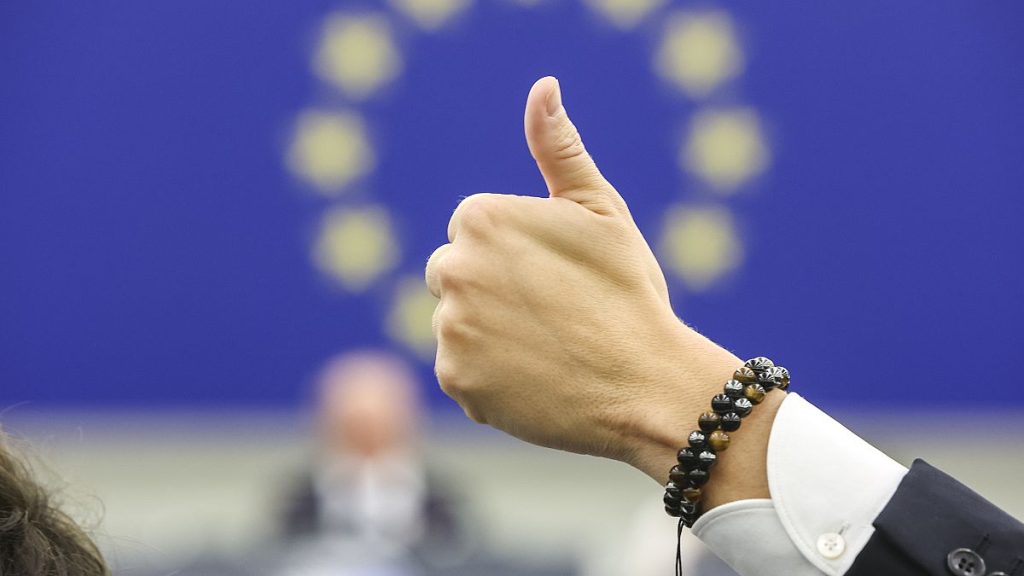Restructuring European Parliament Committees: Enhancing Focus on Key Policy Areas
The European Parliament is undergoing a significant restructuring of its committee system, aiming to enhance its capacity to address pressing societal challenges. This restructuring involves the elevation of two subcommittees to full committee status, the creation of two new special committees, and adjustments to the mandates of existing committees. These changes reflect the Parliament’s commitment to strengthening its oversight and legislative functions in crucial areas such as public health, security and defense, housing, and foreign interference. The restructuring process, which requires a final plenary vote, is expected to conclude in the coming weeks, with committee chairs likely to be appointed in January.
Elevating Subcommittees and Expanding Mandates:
Two existing subcommittees, Security and Defence (SEDE) and Public Health (SANT), will be upgraded to full committee status. This upgrade acknowledges the increasing importance of these policy domains and empowers the committees to play a more influential role in shaping EU policy. SEDE’s expanded mandate will encompass overseeing the EU’s Common Security and Defence Policy, monitoring defence research and innovation, addressing hybrid threats, bolstering the European defence industry, and developing military mobility infrastructure. The expansion of SEDE’s mandate has not been without controversy, however, due to potential overlaps with other committees’ jurisdictions. The elevation of SANT to a full committee reflects the growing recognition of the crucial role of public health in EU policy. SANT will be responsible for pharmaceuticals, medical devices, health crisis preparedness, mental health, patients’ rights, and health aspects of bioterrorism. The committee will also manage inter-institutional relations with other health authorities. Notably, food security and animal welfare will remain under the purview of the renamed Environment, Climate and Food Safety Committee.
Addressing Emerging Challenges: Special Committees on Housing and Foreign Interference:
In addition to the elevation of subcommittees, the Parliament will establish two new special committees. The first will focus on the housing crisis in the EU, a growing concern across member states. With rising rents and house prices, the committee will analyze housing needs, the impact of speculation, and potential market reforms. While the EU’s powers in housing are limited, the Parliament aims to contribute to finding common solutions to this pressing issue. The second special committee will address foreign information manipulation and interference, aligning with the EU’s Democracy Shield initiative. This committee will investigate foreign attempts to undermine democratic processes and propose measures to strengthen the EU’s resilience against such threats. These special committees will operate for a renewable 12-month mandate, providing focused attention to these crucial challenges.
Committee Leadership and Parliamentary Procedures:
The leadership of the new and restructured committees will be determined in the coming months. Existing chairs of the elevated subcommittees are likely to retain their positions, providing continuity in these areas. The leadership of the special committees is also expected to be assigned soon, with prominent MEPs being considered for these crucial roles. The establishment of these committees requires formal approval through a plenary vote. This vote is scheduled to take place during the upcoming plenary session in Strasbourg, marking the final step in the restructuring process. Once approved, the committees can begin their work, contributing to the Parliament’s legislative and oversight functions.
Rationale and Implications of the Restructuring:
The restructuring of the Parliament’s committees reflects the evolving policy landscape and the need for enhanced expertise and focus in key areas. The changes aim to strengthen the Parliament’s capacity to address emerging challenges, such as the housing crisis and foreign interference, while also consolidating its role in established policy domains like public health and security. By elevating subcommittees and creating new special committees, the Parliament enhances its ability to conduct in-depth analysis, propose legislative solutions, and hold other EU institutions accountable. These changes signify a commitment to more effective policymaking and a proactive approach to tackling some of the most pressing issues facing the EU.
Historical Context and Future Outlook:
The Parliament’s committee structure has evolved over time to reflect changing priorities and challenges. The current restructuring builds upon past experiences and seeks to optimize the Parliament’s effectiveness in a complex and dynamic environment. The creation of special committees has been a valuable tool for addressing specific issues, such as organized crime, corruption, cancer, and the COVID-19 pandemic. The new special committees on housing and foreign interference demonstrate the Parliament’s continued commitment to this approach. The restructuring process reflects a commitment to continuous improvement and adaptation, ensuring the Parliament remains a relevant and effective institution in the years to come. The outcome of this restructuring will be closely monitored as the new committees begin their work, shaping EU policies and influencing the future direction of the European Union.














